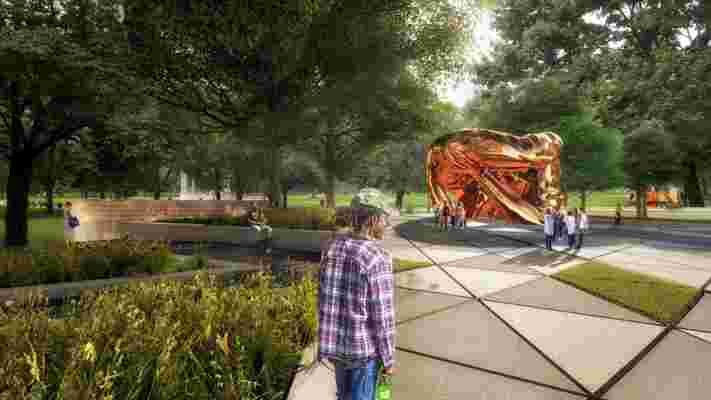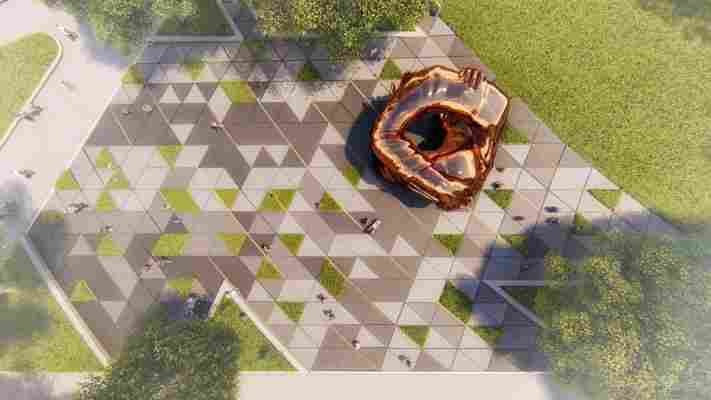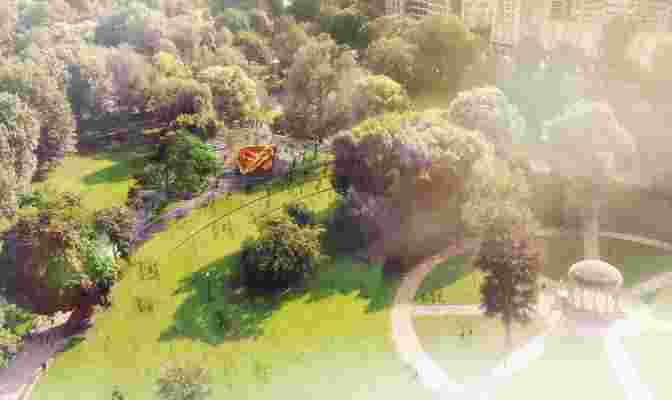In 1965, Martin Luther King Jr. returned to the city where he and Coretta Scott went to graduate school and first met. On that trip, he declared to his audience that “Boston must become a testing ground for the ideals of freedom.” In 2017, King Boston, a privately funded effort working closely with the City of Boston, heeded that call when it asked for submissions for a memorial in the Kings’ honor on Boston Common, the site of many historic marches and protests.
Today, King Boston, which is also supporting a documentary film and additional programming that promotes equity, has announced the winner: conceptual artist Hank Willis Thomas and MASS Design Group, perhaps best known for their work on the National Memorial for Peace and Justice in Montgomery, Alabama.

Unlike other nearby patinated sculptures, the memorial will feature a mirrored bronze finish that makes visitors and passersby part of the installation.
Called The Embrace, the 22-foot-tall sculpture represents the hands of King and Scott King, evoking images of the couple—and other protesters—arm-in-arm in peaceful marches for civil rights as well as the power of physical togetherness in declaring resistance against injustice. “The Embrace” also embodies Scott King’s emphasis on the transformative power of empathy—and putting it into action. Visitors to the sculpture will be readily reflected in its mirror-finish bronze, making them part of the installation.
“Both Martin and Coretta knew that the challenges that faced our nation then—and still today—cannot be fought with more anger, hate, or hostility,” wrote Thomas and Michael Murphy, executive director of MASS Design Group, in an email to AD . “Above all, what we felt like the Kings and their movement stood for was the belief that love is the ultimate tool against injustice.”

The idea for the 22-foot-high sculpture, which models the hands of King and Scott King, evokes images of the couple—and other protesters—in peaceful marches. Unlike so many other memorials, it also celebrates the power of love and togetherness as opposed to war, violence, and singular heroes.
Many other memorials on Boston Common—and throughout the city, as well as our country—are dedicated to military victories and singular heroes. “We wanted this to be a memorial to nonviolence,” wrote Thomas and Murphy.
Thomas and MASS Design were chosen from among a group of five high-profile finalists that also included Yinka Shonibare and Stephen Stimson Associates; Adam Pendleton, Adjaye Associates, FuturePace, and David Reinfurt; Barbara Chase-Riboud; and Wodiczko + Bonder / Maryann Thompson Architects, with Walter Hood.

The sculpture’s central location in Boston Common is near the iconic Parkman Bandstand, where Dr. King addressed an audience in April 1965.

Leave a Reply